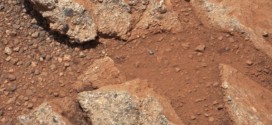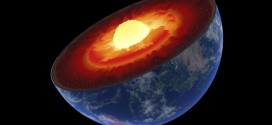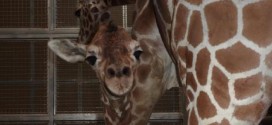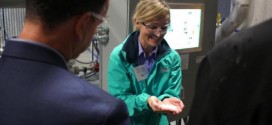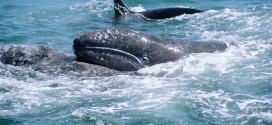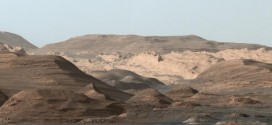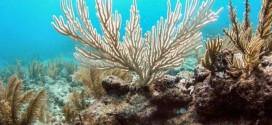Thanks to NASA’s Mars Reconnaissance Orbiter, we now know that liquid water every now and again forms and flows down slopes on the Red Planet. Interestingly, researchers at the University of Pennsylvania say that, while it might be true that Mars still holds some water today, the fact of the matter is it could be that it was pretty much …
Read More »Science
Two giant panda cubs born at Toronto Zoo
The Toronto Zoo is celebrating a Canadian first with the birth of two tiny, pink panda cubs. According to the zoo, Er Shun, a panda on loan from China, gave birth to the first cub at 3:31 a.m. Tuesday. The second followed at 3:44 a.m. “Er Shun is demonstrating excellent maternal instincts and began cleaning and cradling the cub soon …
Read More »Six-hundred-year-old Henry V warship found buried in the river Hamble
A wooden vessel believed to be one of celebrated English king Henry V’s ‘great ships’ has been found in a river in southern England. The wreck discovered in the River Hamble is likely to be the Holigost – the second of four “great” ships which were built for the King’s royal fleet. Government body Historic England now plans to perform …
Read More »Ancient rocks shed light on the age of Earth’s inner core, says new Research
New analysis of ancient rock samples suggest Earth’s inner core formed between 1 and 1.5 billion years ago. The inner core is Earth’s deepest layer. It is a ball of solid iron just larger than Pluto which is surrounded by a liquid outer core. The inner core is a relatively recent addition to our planet and establishing when it was …
Read More »Baby giraffe dies in tragic accident at Chaffee Zoo (Report)
A baby giraffe born at a Central California zoo last month has died after running into a fence in an exhibit. KFSN-TV reports that the male giraffe born Sept. 9 at the Chaffee Zoo died Sunday afternoon.
Read More »Calgary firm opens pilot project to pull carbon from air
The provincial government is providing $435,000 in support of Carbon Engineering’s (CE) carbon capture pilot project that converts CO2 into synthetic fuel. The company that built the plant, Carbon Engineering, was founded by a Canadian scientist named David Keith. A Harvard professor of applied physics, Keith has made headlines before for his outspoken advocacy for more research into geoengineering (specifically, …
Read More »Stay away from English Bay grey whale, Warn Department of Fisheries and Oceans
Federal fisheries officials are warning Vancouverites against getting up close and personal with the grey whale that’s been spotted in the waters off English Bay this past week. Canada’s marine wildlife guidelines stipulate boaters, paddlers and viewers must stay at least 100 metres and preferably 400 metres away from whales, according to a reminder from Fisheries and Oceans Canada. Those …
Read More »Ancient Mars had great lakes and rivers, scientists say
Scientists have uncovered evidence that Mars once had long-lasting lakes and rivers, unlike the extremely temporary appearances of liquid water that seem to exist on the Red Planet today. In a study published on the U.S. journal Science, the Curiosity research team determined that this water helped to fill the Gale Crater, where the rover landed more than three years …
Read More »Elephants avoided extinction by evolving cancer-proof genes, Study
Elephants may hold the key to fighting cancer after scientists found that they carry a large number of genes that suppress tumours. The animals have 38 extra copies of an important gene known as p53 that makes cancerous cells self-destruct before they become dangerous. Humans only have two. But because elephants have so many, they rarely get cancer — despite …
Read More »Coral bleaching hits critical point: 95pc of US reefs at risk, scientists warn
Coral bleaching on Great Barrier Reef predicted to worsen with record warm Pacific Ocean temperatures. The global coral bleaching event – only the third such incident in recorded history – could affect 38% of the world’s coral reefs and destroy 12,000 square kilometres (4,600 square miles) of reef, the researchers said.
Read More »Two Researchers Awarded Nobel Prize In Physics For Neutrinos Discoveries
The Nobel Prize in physics was awarded to two researchers. Takaaki Kajita, of Japan, and Arthur McDonald, of Canada, won for showing that particles called neutrinos have mass. After photons, neutrinos are the most abundant particle in the universe. Their ubiquity, however, comes with an infinitesimal propensity to react with matter. Every second, trillions of neutrinos—some created in the Big …
Read More » Canada Journal – News of the World Articles and videos to bring you the biggest Canadian news stories from across the country every day
Canada Journal – News of the World Articles and videos to bring you the biggest Canadian news stories from across the country every day
